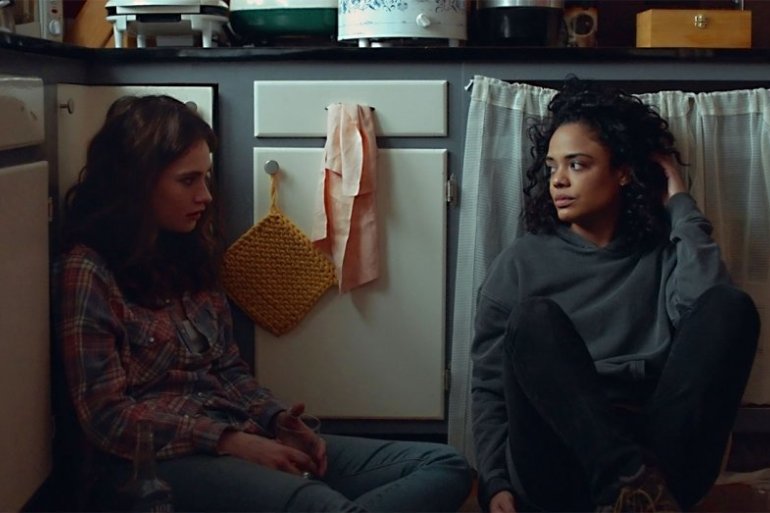With her directorial debut Little Woods, Nia DaCosta has powerfully accentuated the tense situations that often arise in lower working-class life. Set in the fictional Little Woods, North Dakota, the film follows retired drug dealer Ollie (Tessa Thompson) and her disorganized sister, Deb (Lily James). Tired of constantly picking up after her sister, Ollie is nevertheless spurred on by a strong maternal drive to keep Deb and her son safe—navigating through a terrifying environment in which overpowering, masculine forces thrive.
On parole after being charged with selling illegal substances, Ollie is merely a week away from her release. In this week, however, Deb announces her unplanned pregnancy—a situation worsened by her precarious financial situation: there’s no room to have a second child, nor enough money for an abortion, while the cost of hospital bills alone is a serious deterrent. On top of this, the siblings are in a struggle to save their childhood home from foreclosure.
Tragically, there is no room for Ollie to prioritize these issues. Hoping for a fresh start, she applies for a job in Spokane—though, given everything that’s going on around her, a fresh start really seems out of the question. Under pressure from these financial burdens, she backpedals and returns to drug-dealing. Coupled with Deb working at the diner and receiving (minimal) financial support from the children’s father, Ian (James Badge Dale), it looks as though the pair might just have enough money to put down the required payment for the house.
That is, until a particular chain of events leads to a lost load of cash and drugs. With no means of paying for the house, nor any safe solution left to cope with Deb’s pregnancy, the pair embark on a runaway trip to Canada for a free abortion, taking an excursion along the way to traffic drugs. This sequence of tense slip-ups and close-calls is masterfully executed, leaving us with no room to catch a breath.
The entire movie, in fact, plays out in a similar manner. Though it is set in the seeming mundanity of the mid-Northwest, the film deploys these features to its advantage—creating an environment abject from the day-to-day hubbub that other civilians face. Little Woods is, in its entirety, a critique of the troubled American healthcare system, an extremely realist depiction of poverty, and a necessary discussion of the opioid crisis. DaCosta handles each of these heavy topics with grace, leaving a burning sensation in the minds of its viewers. This film is a call to action.
If only for the fact that it’s finally ended, the only time for unclenching fists and relaxing gritted teeth is as the credits roll. While Little Woods may appear dull or tedious due to its mundane setting, it’s really anything but. It is a thriller—a horror, even—that takes its roots in the rampant destruction brought about by capitalism. As Ollie and Deb push forward in the hopes of putting their derailed lives back on track, their humanity rests in the fate of money alone.
Little Woods premiered at Tribeca Film Festival 2018 and will have a limited release in theaters starting April 19.
To help us continue to create content, please consider supporting us on Patreon.


